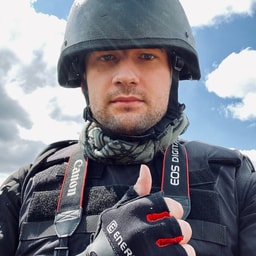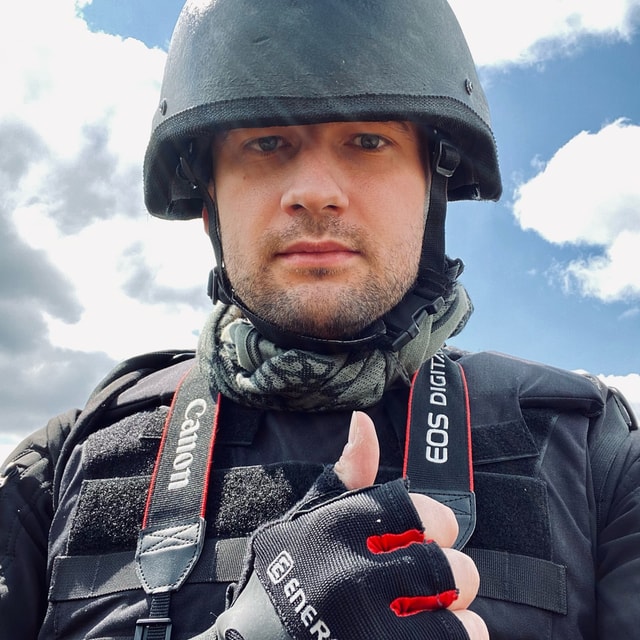Illia Ponomarenko: How Russia killed 3 cities of my life

“Mom, you just have to get out,” I was saying into the phone, again and again.
“I’ve bought you a ticket, take the night train and come to Kyiv. It’s for your safety, just leave the town for some time. Nobody knows if the worst is to happen soon.”
But my mother Iryna wouldn’t listen. I was breaking into her quiet and very routine world of living in the town of Volnovakha in Donbas and working as a mid-ranking clerk.
I was begging her to leave this comfortable routine because of something that made no sense to her ears — the gathering storm of a big war.
“You just lost your mind,” she would argue every evening.
“Nothing’s happening to this place. It’s all quiet and fine. Stop fooling around, I am perfectly fine here.”
But I was worried. As a defense reporter, I was seeing that the insanity of Russia’s war crisis was quickly tipping over into the worst scenario.
Anti-Ukrainian hysteria in Russia was flaming up every single day. Exalted propaganda was reveling in blood and fury, demanding that Ukraine be eliminated as an independent nation for the sake of “historical justice.”
Vladimir Putin of Russia, his face twisted with mad loathing, was delivering the most imperialistic and hateful speeches since Adolf Hitler.
The Russian horde of over 150,000 at the border was painting tactical signs Z and V on its armor.
They were actually doing this.
My hometown of Volnovakha was situated just 20 kilometers away from the Donbas front line.
And time seemed to be running out.
I eventually made my mother take a night train to Kyiv, which took me a lot of real angry yelling on the phone.
She boarded the train on the evening of Feb. 23.
Several hours later, at nearly 5 a.m., after a sleepless night in front of my laptop, I called her again, when she was sleeping in the overnight train to Kyiv.
“Wake up and call everybody in town,” I said.
“It’s a war.”
The rolling thunder of the first Russian airstrikes upon Kyiv was already shaking the glass of my windows.
What followed was the largest and the most destructive war of conquest in Europe since World War II.
Russian helicopters landing an elite airborne force in the Hostomel Airfield. Giant armored columns rushing toward Kyiv through the Chornobyl Exclusion Zone. Russian Spetsnaz’s Tigr vehicles breaking through the Kharkiv defenses.
It seemed like a bad doomsday dream after which one wakes up in cold sweat. But there was no waking up from this.
My mother left Donbas just hours before Putin launched a full-fledged war. Soon the whole region once again became a giant battlefield.
Volnovakha was just one among many little known cities and towns of Donetsk Oblast.
It was established in 1881 as a small train station.
Back then, in the late 19th century, the Russian Empire was establishing a huge network of railroads to connect its new, quickly developing industrial centers, particularly Yuzovka (which later became Donetsk) and Mariupol, a port city.
The settlement was initially home to just a handful of workers maintaining the imperial railroad. And for over a century of its history, the town has preserved its role as an important railway junction.
Much of the town worked for the local train depot, and much of its life was focused on railroading.
My early years in a local elementary school, to which I had to walk over two kilometers every day, passed on to the sound of rumbling metal tracks.
It was a very typical quiet workers’ town of nearly 20,000 people, living its slow life amid fields of wheat and corn.
A couple of very dubious bars, a marketplace, a godforsaken bus station, a park no one should go to after dark, a modest bookstore where I used to spend all my pocket money. Lots of teenagers like myself, roaming in the streets and looking for fun.
Yet, there was something good and comforting about that corner of the world.
When a Rolling Stone reporter asked me about Volnovakha during an interview, I came up with an apt description: It was a place where nothing happens to you. That includes nothing really bad happening to you as well.
No wonder my mother refused to believe a big war was coming.
In Russia’s war on Ukraine, which lasts since 2014, my hometown Volnovakha became spoken of worldwide on two occasions.
The first one was in February 2015, when a Russian BM-21 Grad fired on a local bus full of people on a highway just outside the city. Ten were killed on the spot, with blood pouring out of the bus’s riddled compartment. My godmother was there, but she was lucky to survive.
Volnovakha remained under Ukrainian control, and was developing very fast over the last few years. Pretty good restaurants and bars opened. Lots of people were coming from Russian-occupied territories for shopping. New small businesses were popping up.
The government was investing a lot of money. People were getting pretty decent salaries.
The Ukrainian military jokingly nicknamed it “Volno-Vegas” admitting the town’s edge over many other places in Donbas.
The end of days came with Russian hordes coming from the east on Feb. 27, the grand war’s day four.
Volnovakha was of strategic importance as a key transportation junction and a fortress north of Mariupol. So Russia’s combined regular and militant forces had no mercy for it.
The encircled town found itself in hell.
As Ukraine’s military defended the area, my townsfolk was starving in the dark of basements under relentless shelling.
No electricity, no running water, no phone connection, no way out.
Many people, driven by thirst and desperation, tried to get out in the open. Those who managed to make it say they were seeing ruined streets full of dead bodies of those who ended up being less lucky.
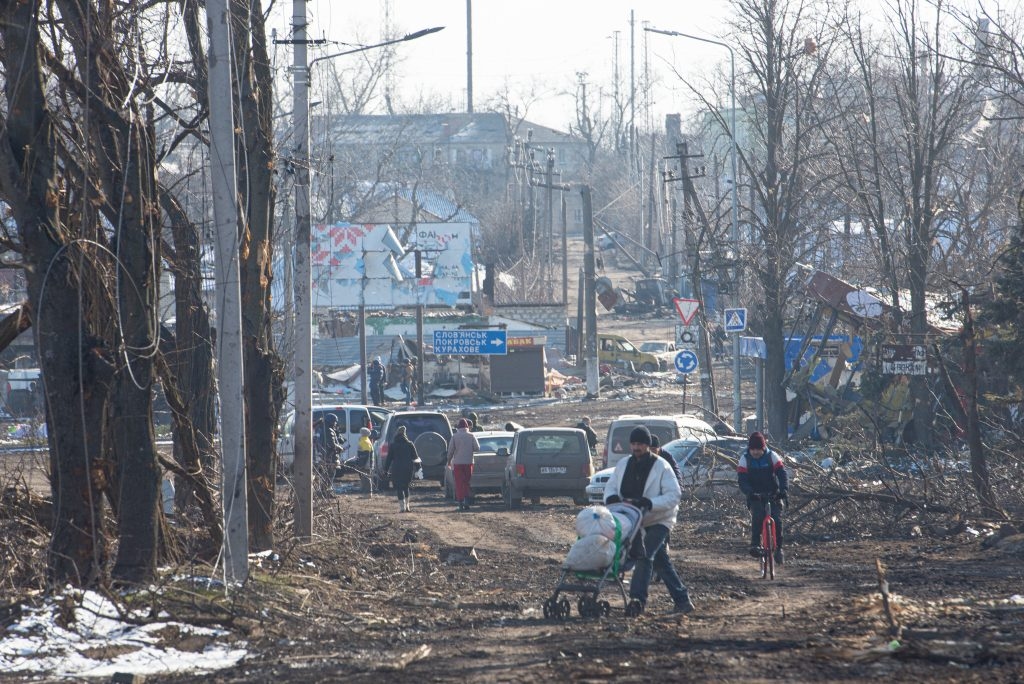
My mother’s best friend Oksana survived because she just took her bicycle and went at random in the absolute dark. She very accidentally came to a Ukrainian military checkpoint.
My elderly grandmother was saved by my uncle, but not before she spent two weeks in the basement with almost no food or drinking water.
The Ukrainian military was deterring the enemy as hundreds of civilians were being evacuated.
But by March 12, the local authorities admitted that Volnovakha effectively ceased to exist as a human settlement. It was turned into a heap of lifeless ruins, with not a single building left intact.
Volnovakha was spoken of across the world again.
But that was just the beginning.
Next, it was Mariupol’s turn.
Those scorched ruins the world is looking at in pictures and videos used to be the Mariupol State University where I spent five happy years as a student.
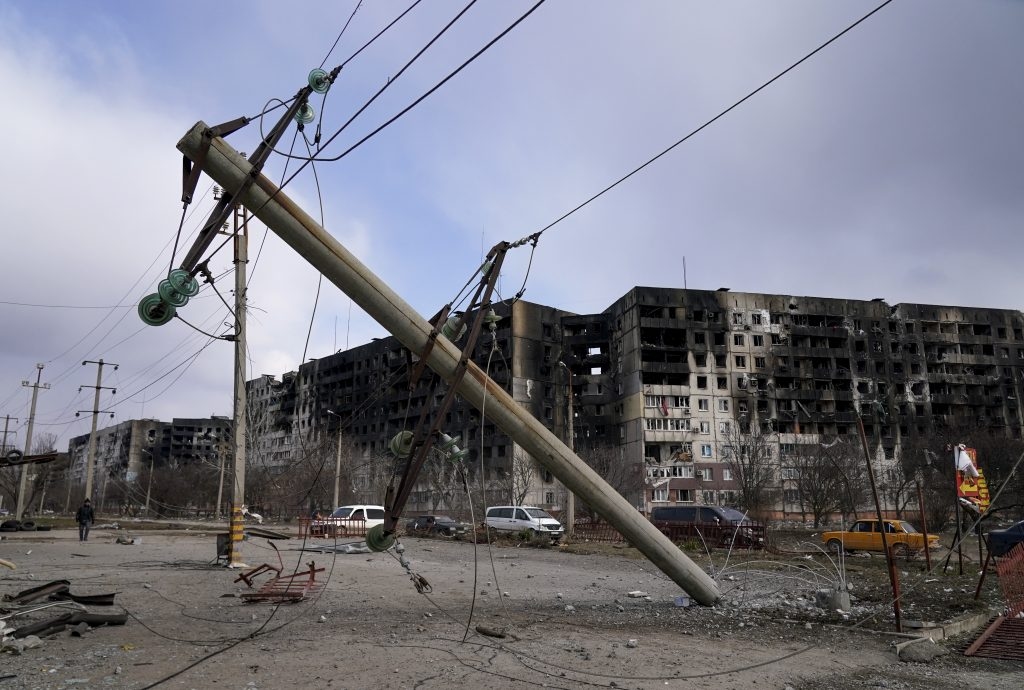
The now-infamous Drama Theater that was destroyed by bombing is where I used to bring girls on dates.
That other ruined building used to be a music store where I bought my first guitar.
That was our dormitory where we had drunk all-night-long parties.
That was my book store.
That was the cargo terminal where I had side jobs.
Last September, my buddy and I had a three-week-long car trip around the country. And as our final stop before getting back to Kyiv, we decided to drop by Mariupol, just to say hi to old friends and visit a couple of old places.
I was genuinely surprised by how the city had changed for the better. Clean streets, nice roads, new fancy bus stops, new good-looking coffee places, food courts almost as good as those in Kyiv.
The progress was striking.
The Square of Peace and Freedom, the ensemble of 25 white dove figurines blazing in the sunset, is my last bright memory of Mariupol.
As it appears, that was my last goodbye to the city.
Like Volnovakha, Mariupol was razed to the ground by Russia, with reported 20,000 civilian fatalities.

The grief of death is universal and far-reaching. Few among us have escaped it.
A former classmate of mine, Serhiy Myronenko, was killed by a Russian artillery shell in Mariupol as he was trying to get some firewood in the street. My friend’s father Ilya Gubenko was killed in his apartment in Mariupol.
My Kyiv flatmate Ivan spent weeks trying to find out if his sister was still alive in Mariupol (she’s now safe though very traumatized).
More than 60 days into the war, we have no idea what happened to dozens of our friends and acquaintances, ex-girlfriends, and university mates.
And then there was Bucha.
A cozy suburb northwest of Kyiv, a quiet place among the woods, a popular housing development area. A town in the park — very fine by me. I noticed and loved it during my bicycle travels in the Kyiv Oblast.
It is the place I decided to invest my humble savings in and purchased a half-finished apartment. Just two days before Feb. 24, I got myself registered as the apartment’s owner and resident.
Now Bucha is known worldwide as a symbol of Russian war crimes and atrocities. Now as you google “Bucha,” you don’t see pictures of local parks, houses, and lakes. The web shows you mass graves, destroyed armored vehicles, scorched houses, and bodies of civilians shot in the head with their hands tied.
Putin has drowned in blood three out of the four most important cities of my life, one after one.
And I am just a needle in the hay. One of the 40 million having to see this — just because a mad hateful dictator decided that Ukraine is not a real country, so it must be brought down on its knees.
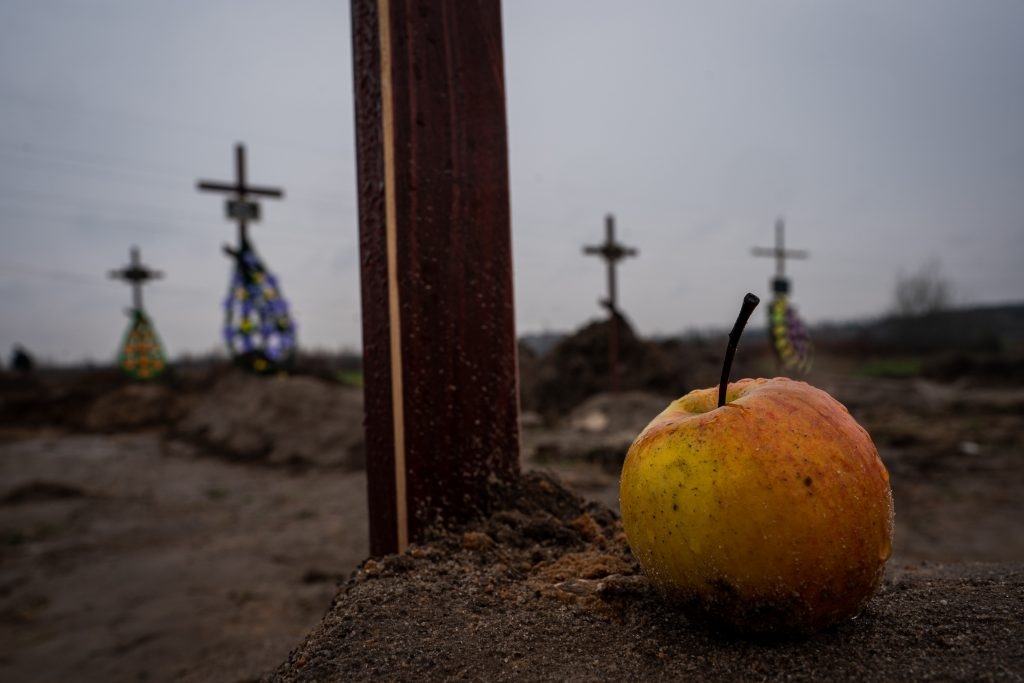
Midday on Feb. 24, my mother safely arrived in Kyiv.
The central railway station was cold and gloomy, the city was shocked and bewildered. Thousands of cars blocked all key streets and highways, trying to flee.
The worst and the unthinkable had really happened. Back then, many of us thought that was the end.
But after we took my mother to a safe place in western Ukraine, my flatmate and I decided to get back to Kyiv, no matter what. At least for the sake of not leaving our city behind in the darkest hour. We thought that we might come too late and will be there only to see the city’s downfall.
We made it back, with great difficulty, bursting into the empty city to the flashlights of S-300 air defense intercepting Russian missiles targeting Kyiv suburbs.
The Battle of Kyiv was raging high.
And we lived through it, in an apartment just a few kilometers away from the battlefield, waking up every night amid artillery barrage.
Until the Russian military was defeated and fled.
Now, thoughts and emotions are quite the opposite of where we were on day one.
We all have sustained heavy losses, and more is probably coming our way. But quite surprisingly even to ourselves, we are on a track of having a very real chance of winning this war against all odds.
Putin has already desolated my hometown, my college town, and the town where I was about to settle in my very own apartment.
But as current events show, he’s never getting my capital city.
